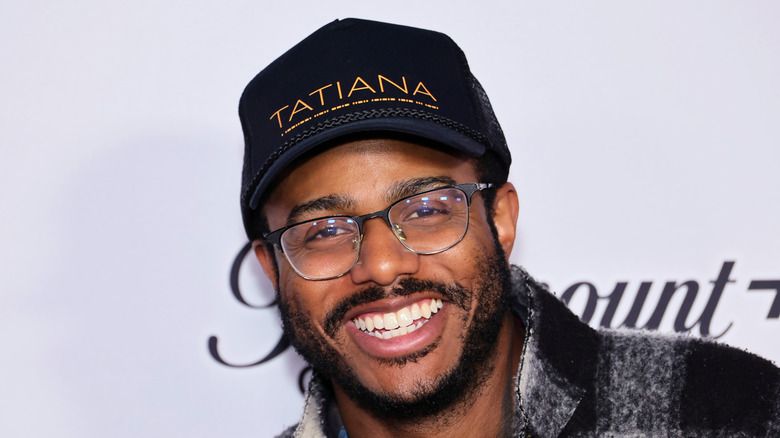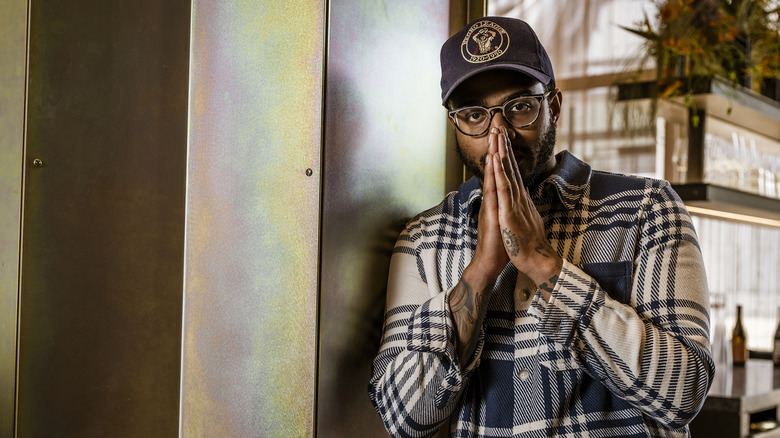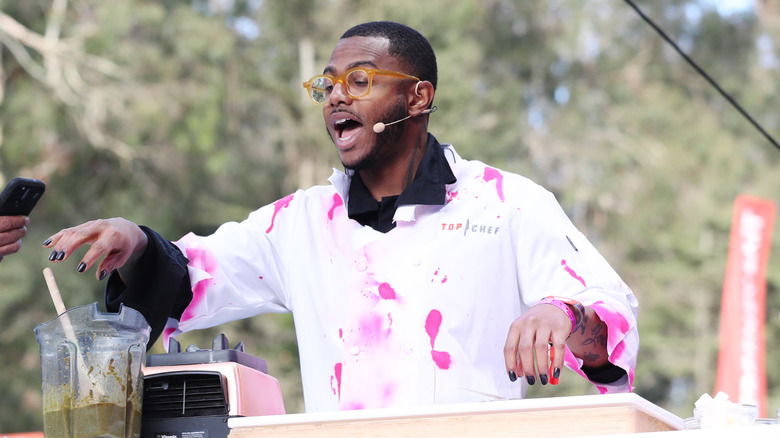The Lessons That Top Chef Kwame Onwuachi Learned From Working At McDonald's
Kwame Onwuachi is a celebrity chef that you might recognize from his stint on Bravo's "Top Chef" in 2015. He was one of the youngest chefs starring that season, eventually landing in sixth place, and is the author of several books, including "Notes From a Young Black Chef: a Memoir" and "My America: Recipes from a Young Black Chef." In 2022, he'd go on to open the restaurant Tatiana in his hometown of New York City, and he recently opened up Dogon, a new restaurant in Washington D.C., earlier this month. Both restaurants focus on Afro-Caribbean cooking, which reflect Onwuachi's Nigerian, Jamaican, Trinidadian and Creole background.
But one thing you might not know about him is that he was once a McDonald's employee, which is, as you'd imagine, a far cry from where Onwuachi is today. I caught up with him at a McDonald's employee appreciation event called the "1 in 8" celebration, which refers to the statistic that one in eight Americans has held a job at McDonald's at some point in their careers. He sat down with me for to talk about the lessons he learned during his time at the fast food restaurant and how it's helped define his restaurants today. It turns out fast food shares more DNA with fine dining than you'd think — Onwuachi learned lessons about consistency and efficiency from McDonald's that he uses in his fine dining kitchens.
The consistency he learned in fast food is key
You'd think that working in a fast food kitchen would be nothing like running a fine dining one, but it turns out, there are some valuable culinary lessons that cross those boundaries. When asked how he still uses his fast food experience, Onwuachi says, "There was a lot of values I learned at McDonald's that translated. At the end of the end of the day, McDonald's is still a restaurant. You know, they're serving food and they do it at a high level in terms of maintaining consistency. You can't have consistency without having standards and setting standards."
And if you've ever sampled McDonald's while traveling, you already know that a Big Mac more or less tastes the same everywhere you go, even across international borders. Though this is something that most of us don't actively think about as fast food eaters, making a burger that tastes the same in Chicago as it does in France is a more challenging feat to pull off than it looks. These daily systematic processes can be hard to execute consistently, even down to the independent restaurant level.
Implementing foolproof systems helps streamline service
Onwuachi also stresses that it's about implementing operating systems that make everything as foolproof as possible, using a similar mentality to what he learned during his McDonald's days. "So I definitely have taken that with me throughout my career," he notes, "Whether it's high-end Michelin star restaurants or restaurants like McDonald's. The more you can streamline your processes, the better the outcome will be for the guests."
Though it's easy to get caught up in the glamor of the food itself, the unseen moving forces behind a restaurant are just as important to keeping the doors open. Judging by the success of his restaurant Tatiana, which landed in the top spot of The New York Times list of the best 100 restaurants in New York City for 2024, it seems like those learning experiences have given him a practical point of view on how to run the show. And though Dogon's too new for any reviews from professional critics yet, it seems as if the general public is enjoying it quite a bit (its Yelp average is 4.8 out of 5 at the time of this writing).


